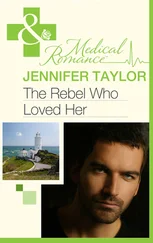William Kienzle - Man Who Loved God
Здесь есть возможность читать онлайн «William Kienzle - Man Who Loved God» весь текст электронной книги совершенно бесплатно (целиком полную версию без сокращений). В некоторых случаях можно слушать аудио, скачать через торрент в формате fb2 и присутствует краткое содержание. Жанр: Криминальный детектив, на английском языке. Описание произведения, (предисловие) а так же отзывы посетителей доступны на портале библиотеки ЛибКат.
- Название:Man Who Loved God
- Автор:
- Жанр:
- Год:неизвестен
- ISBN:нет данных
- Рейтинг книги:3 / 5. Голосов: 1
-
Избранное:Добавить в избранное
- Отзывы:
-
Ваша оценка:
- 60
- 1
- 2
- 3
- 4
- 5
Man Who Loved God: краткое содержание, описание и аннотация
Предлагаем к чтению аннотацию, описание, краткое содержание или предисловие (зависит от того, что написал сам автор книги «Man Who Loved God»). Если вы не нашли необходимую информацию о книге — напишите в комментариях, мы постараемся отыскать её.
Man Who Loved God — читать онлайн бесплатно полную книгу (весь текст) целиком
Ниже представлен текст книги, разбитый по страницам. Система сохранения места последней прочитанной страницы, позволяет с удобством читать онлайн бесплатно книгу «Man Who Loved God», без необходимости каждый раз заново искать на чём Вы остановились. Поставьте закладку, и сможете в любой момент перейти на страницу, на которой закончили чтение.
Интервал:
Закладка:
At the start of his forty-three years as a priest, few parishes had only one priest to serve them. Thus when vacation time rolled around, it was simply a matter of filling in, of taking on a few more responsibilities, offering an additional Mass on a weekend. Besides, there were lots of religious order priests, teachers not assigned to a parish, who could fill in.
All that had changed drastically. Not only were one-priest parishes quite common now, parishes were being closed or “clustered.”
Granted, it was still possible for priests to carve out some leisure time. It worked if parishioners made do with no-Mass Communion services conducted by a deacon, a nun, or a lay volunteer.
Indeed, Koesler had heard of a recent incident in a suburban Detroit parish. It was the 11 A.M. Sunday Mass with a nearly overflow congregation. The priest didn’t show. So a woman who was taking theology and liturgy classes at Orchard Lake’s Saints Cyril and Methodius Seminary conducted a satisfying and proper Communion service.
Afterward, one of the male parishioners, congratulating her on her performance, said to her, “They’ll probably ordain you now.”
“No chance,” she replied.
“Why not?”
“I’m overqualified.”
Most of the priests who heard this story thought it hilarious.
Koesler’s second reason for not taking time off was that finding a substitute for a couple of weeks just wasn’t worth the bother. Frankly, he enjoyed what he did as a priest. Leaving his work was like vacationing from a vacation.
But this time off had been handed him on a platter. Out of the blue, a priest had phoned and offered to substitute for Koesler while he got away from it all for two or three weeks.
Koesler had not sought this relief. That the offer was made so spontaneously made it seem like a gift from God. Manna in the wilderness.
With little time to plan, Koesler had selected Georgian Bay in Canada. He’d always wanted to visit that area, rich in missionary lore. Besides, one of his priest friends was stationed in a parish in that vicinity.
The visiting priest who would substitute for him was now upstairs in St. Joseph’s rectory. He had arrived this very day and Father Koesler had already given him a tour of the buildings and a briefing on how things were done at old St. Joe’s.
That was another new wrinkle. Before so many changes had followed the Second Vatican Council, there was little, if any, diversity in the way Mass was offered or services were conducted from one parish, or even one diocese or country, to the next.
The language was in Latin within the Latin Rite churches throughout the world. Rubrics-instructions-were identical and told the priest what tone of voice to use, what gestures to make, and where to move and when.
That was then. Now there were subtle and some not so subtle nuances from parish to parish within the same diocese.
In the 1950s and earlier, a visiting priest could walk into a sacristy, vest, and go to the altar without even a greeting to or from the pastor. Now the common question before attempting Mass in an unfamiliar parish was, “How do you do it here?”
For Father Koesler the most unusual part of this present improbable arrangement was the identity of the visiting priest: He was a member of the religious order of St. Joseph’s Society of the Sacred Heart, or, more popularly, the Josephites.
The Josephites, an order small in number, were dedicated to a parish ministry for African-Americans. Possibly their most famous member was Father Phil Berrigan, who, with his Jesuit brother, Father Dan Berrigan, raised consciousness over the issues of war, injustice, and poverty.
That was the visitor’s background. His name was Tully-Father Zachary Tully. And at this moment he came downstairs and stepped into Koesler’s office.
“All settled in?” Koesler asked brightly.
“It didn’t take long.” Tully wore a black suit and clerical collar.
Koesler himself regularly dressed in clericals; he appreciated other priests in uniform. “I notice you didn’t bring much with you. I hope our Michigan weather doesn’t surprise you too much.”
“We’re just out of August,” the other protested.
“It gets tricky in Michigan. After all, you’re up here from Dallas.”
Father Tully took a chair opposite Koesler. “That’s Texas, and that probably sounds warm to a Northerner or a damyankee. But we have our winters too. Oh, granted, not like yours,” he said, anticipating Koesler’s exception. “But we need our warm clothing too.” He chuckled. “I remember one Christmas when we had an ice storm in Dallas. Knocked out the electricity and really threw the residents for a loop. Some of the neighborhoods didn’t get the power back on for eleven days.” He grinned. “Which led to the headline on the front page of one of the Dallas papers: DALLAS OFFICE OF EMERGENCY PREPAREDNESS NOT YET READY.”
“Speaking of winter temperatures,” Koesler said with a smile, “how about, for medicinal purposes, a drink?”
Father Tully waved the offer away. “No. Thanks much, but I’d better save myself for the party tonight.”
“That’s right,” Koesler recalled, “you’re headed for a party, aren’t you? Something about a bank?”
“Adams Bank and Trust. That’s what got all this going.”
“Yes.” Koesler warmed to the story. “How was that again?”
“Well, most of us Josephites are at least acquainted with the name Tom Adams. He’s been a major league donor to our order. I’ve always been impressed with his generosity.
“We were set to recognize him and his charity toward us and present him with our annual St. Peter Claver Award. Then we got word that he was going to open a branch of his bank in one of the poorest sections of Detroit. Our Superior General decided to break with tradition and give him the award out of due season as it were. To make it extra special.
“So, don’t ask me why, but I was chosen to present the award. That’s what I’m going to do at the party tonight.
“We would’ve preferred a larger ceremony-maybe in the cathedral with your Cardinal Archbishop Boyle. But Mr. Adams preferred a private ceremony with some of his employees and their spouses. And we said-what else? — ‘Whatever you want, Mr. Adams.’”
“Yes,” Koesler urged, “but how did you find out you had a prominent relative here?”
Tully settled into the chair and leaned forward. “Let’s see … how to put this …? Well, my father died some forty years ago. I was just five then, so I hardly knew or remember him. My mother and her sister raised me. My dad didn’t have any religion in his life, so they told me.
“But my mother and my aunt were sort of super-Catholic. So it wasn’t very unusual that pretty early on I thought of being a priest.”
“That’s the way it usually works,” Koesler agreed. “Or at least the way it used to work.”
“Then,” Tully continued, “our parish in Baltimore was staffed by a Josephite priest. He sort of took me under his wing. And off I went to the Josephite seminary. About twenty years ago I was ordained and I’ve spent these years hopping around to various of our parishes. It’s been a great life.” Tully smiled broadly. “My aunt, when she found out I was going to Detroit-for the first time in my life-told me the story.
“It started with my parents’ marriage. It was my father’s second marriage, my mother’s first. He was supposed to be a widower. Whenever the priest pressed Dad for documentation on his first marriage, he stalled, gave excuses, got nasty. I guess the priest decided life was too short for all this grief. So he ended up taking depositions instead of documents.
“Anyway, they were married. I was their only child. Just after Dad died, his first wife finally found us. I didn’t know about all this. Only my mother and my aunt knew. And they chose not to tell me. It was mostly my mother’s decision. But Aunt May went along with it.
Читать дальшеИнтервал:
Закладка:
Похожие книги на «Man Who Loved God»
Представляем Вашему вниманию похожие книги на «Man Who Loved God» списком для выбора. Мы отобрали схожую по названию и смыслу литературу в надежде предоставить читателям больше вариантов отыскать новые, интересные, ещё непрочитанные произведения.
Обсуждение, отзывы о книге «Man Who Loved God» и просто собственные мнения читателей. Оставьте ваши комментарии, напишите, что Вы думаете о произведении, его смысле или главных героях. Укажите что конкретно понравилось, а что нет, и почему Вы так считаете.












